职高英语基础模块上Unit1
- 格式:ppt
- 大小:1.06 MB
- 文档页数:15
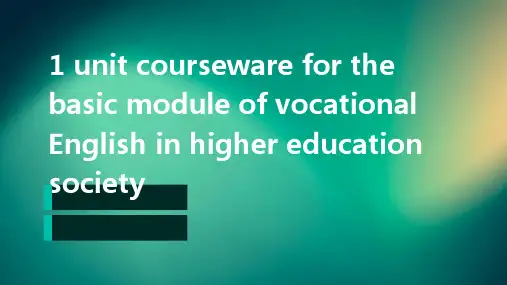
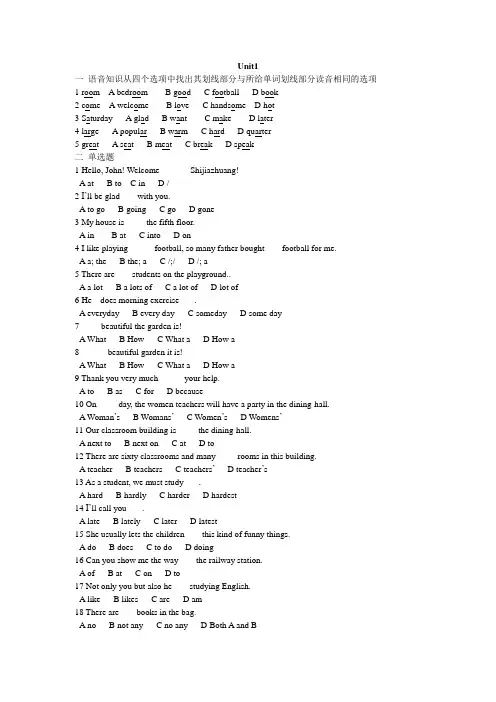
Unit1一语音知识从四个选项中找出其划线部分与所给单词划线部分读音相同的选项1 room A bedroom B good C football D book2 come A welcome B love C handsome D hot3 Saturday A glad B want C make D later4 large A popular B warm C hard D quarter5 great A seat B meat C break D speak二单选题1 Hello, John! Welcome ______ Shijiazhuang!A atB toC inD /2 I’ll be glad ___ with you.A to goB goingC goD gone3 My house is ____ the fifth floor.A inB atC intoD on4 I like playing _____ football, so many father bought ___ football for me.A a; theB the; aC /;/D /; a5 There are ___ students on the playground..A a lotB a lots ofC a lot ofD lot of6 He does morning exercise ___.A everydayB every dayC somedayD some day7 ____ beautiful the garden is!A WhatB HowC What aD How a8 ____ beautiful garden it is!A WhatB HowC What aD How a9 Thank you very much _____ your help.A toB asC forD because10 On ____ day, the women teachers will have a party in the dining-hall.A Woman’sB Womans’C Women’sD Womens’11 Our classroom building is ____ the dining-hall.A next toB next onC atD to12 There are sixty classrooms and many ____ rooms in this building.A teacherB teachersC teachers’D teacher’s13 As a student, we must study ___.A hardB hardlyC harderD hardest14 I’ll call you ___.A lateB latelyC laterD latest15 She usually lets the children ___ this kind of funny things.A doB doesC to doD doing16 Can you show me the way ___ the railway station.A ofB atC onD to17 Not only you but also he ___ studying English.A likeB likesC areD am18 There are ___ books in the bag.A noB not anyC no anyD Both A and B19 The teacher and the writer ___ going to give us a speech on weekends.A isB areC haveD has20 The teacher and writer ___ going to give us a speech on weekends.A isB areC haveD has21 There ___ a dining-hall room and two bedrooms in my house.A beB isC areD has22 There ____ three students and a professor in the room.A beB isC areD have23 ____ there any juice in the class?A IsB BeC AreD Has24 – Nice to meet you!- _____.A Good morningB Fine, thanksC Nice to meet you ,too.D Thank you25 – Hello, Mary! How are you?-- ____A Thank you.B Fine, thanks. And you?C Nice to meet you!D My name is Zhang Lin.三单词拼写1 Our school _________(图书馆)is in a new building.2 She graduated from a ___________(职业的) school in 2008.3 This afternoon we are going to play ___________(参观)a friend in hospital.4 The boys are going to play ___________(篮球)in the afternoon.5 My brother looks _________(英俊的)and healthy.四词形变换1 He often reads in the _____(read) room after school.2 That red ______(build) is our dormitory.3 Thank you for _________(tell) me the truth.4 Our classroom is the __________(bright)one in our school.5 There are four _______(man) teachers in the classroom.五作文My school life (80—100词)要求:描述你的学校生活以及感受。
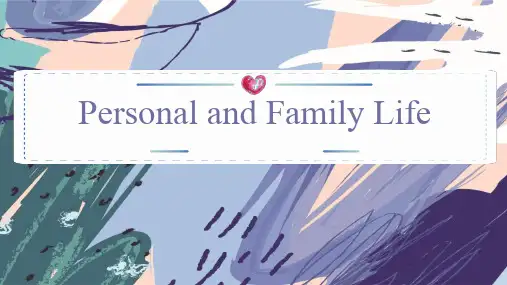
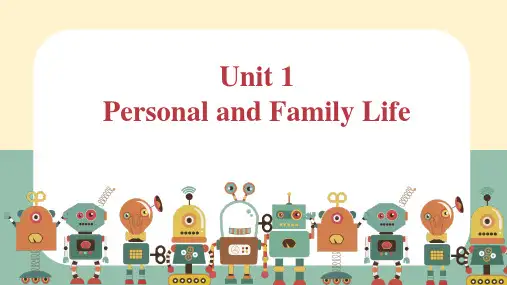
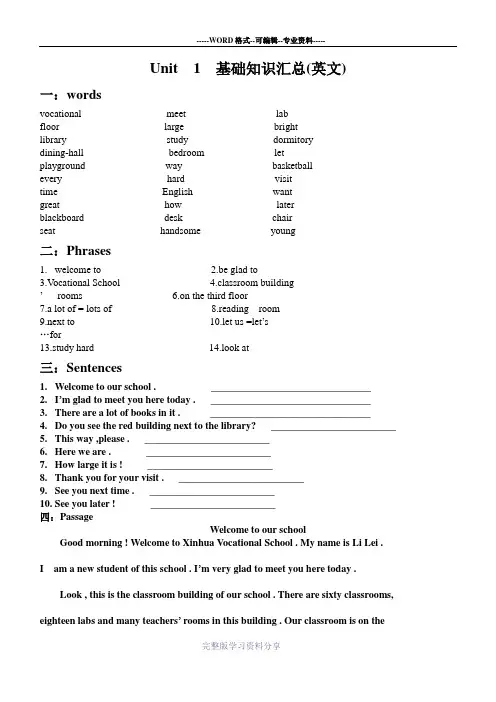
Unit 1 基础知识汇总(英文)一:wordsvocational meet labfloor large brightlibrary study dormitorydining-hall bedroom letplayground way basketballevery hard visittime English wantgreat how laterblackboard desk chairseat handsome young二:Phrases1.welcome to2.be glad to3.V ocational School4.classroom building’rooms 6.on the third floor7.a lot of = lots of 8.reading room9.next to 10.let us =let’s…for13.study hard 14.look at三:Sentences1.Welcome to our school . ________________________________2.I’m glad to meet you here today . ________________________________3.There are a lot of books in it . ________________________________4.Do you see the red building next to the library? _________________________5.This way ,please . _________________________6.Here we are . _________________________7.How large it is ! _________________________8.Thank you for your visit . _________________________9.See you next time . _________________________10.See you later ! _________________________四:PassageWelcome to our schoolGood morning ! Welcome to Xinhua Vocational School . My name is Li Lei .I am a new student of this school . I’m very glad to meet you here today .Look , this is the classroom building of our school . There are sixty classrooms, eighteen labs and many teachers’ rooms in this building . Our classroom is on thethird floor . It is large and bright . There are fifty students in our class . Thatbuilding is the school library .It is a new building . There are a lot of books init .There are four reading rooms in the library .We can read and study in the readingrooms after class . Do you see the red building next to the library ?That is thestudents’ dormitory .There is a large dining-hall and many bedrooms in it .Now let’sgo to the playground of our school .This way , please .Oh, here we are ! How largeit is ! Many students play basketball and football here after class every day .Our school is a very good school . We love our school . We all study hard here .Well, thank you for your visit . See you next time .Complete the blanks :完形填空Welcome to Center Street. Center Street is a great place to enjoy ___ 1 ___ .There are ____ 2 ____ stores and shops on it. It is a very ___ 3 ____ street. If you want to ____ 4 ___ you can go to the video arcade. It is ___ 5 ___ from the big supermarket. There is also a new park ___ 6 ___ the supermarket. It is ___7 ___ and quiet. You can ____8 ___ your picnic(野餐) in it. If you want to see ___9 ___,you can go to the movie house. It is ____10 __ the supermarket and the park.1 B.you2A.lot of B.a lots C.a lot of D.a lot34A.have lunch B.play games C.buy clothes D.see animals5 D. near678910 D.next to阅读理解。
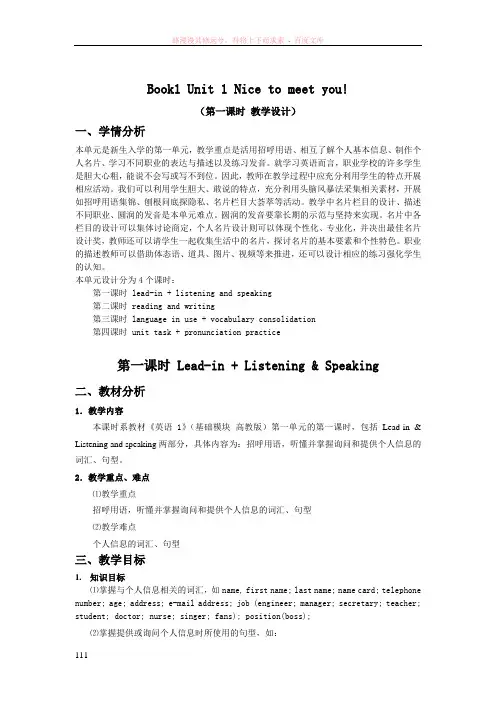
Book1 Unit 1 Nice to meet you!(第一课时教学设计)一、学情分析本单元是新生入学的第一单元,教学重点是活用招呼用语、相互了解个人基本信息、制作个人名片、学习不同职业的表达与描述以及练习发音。
就学习英语而言,职业学校的许多学生是胆大心粗,能说不会写或写不到位。
因此,教师在教学过程中应充分利用学生的特点开展相应活动。
我们可以利用学生胆大、敢说的特点,充分利用头脑风暴法采集相关素材,开展如招呼用语集锦、刨根问底探隐私、名片栏目大荟萃等活动。
教学中名片栏目的设计、描述不同职业、圆润的发音是本单元难点。
圆润的发音要靠长期的示范与坚持来实现。
名片中各栏目的设计可以集体讨论商定,个人名片设计则可以体现个性化、专业化,并决出最佳名片设计奖,教师还可以请学生一起收集生活中的名片,探讨名片的基本要素和个性特色。
职业的描述教师可以借助体态语、道具、图片、视频等来推进,还可以设计相应的练习强化学生的认知。
本单元设计分为4个课时:第一课时 lead-in + listening and speaking第二课时 reading and writing第三课时 language in use + vocabulary consolidation第四课时 unit task + pronunciation practice第一课时 Lead-in + Listening & Speaking二、教材分析1.教学内容本课时系教材《英语1》(基础模块高教版)第一单元的第一课时,包括Lead-in & Listening and speaking两部分,具体内容为:招呼用语,听懂并掌握询问和提供个人信息的词汇、句型。
2.教学重点、难点⑴教学重点招呼用语,听懂并掌握询问和提供个人信息的词汇、句型⑵教学难点个人信息的词汇、句型三、教学目标1.知识目标⑴掌握与个人信息相关的词汇,如name, first name; last name; name card; telephone number; age; address; e-mail address; job (engineer; manager; secretary; teacher; student; doctor; nurse; singer; fans); position(boss);⑵掌握提供或询问个人信息时所使用的句型,如:1) about greeting:Good morning.Hi.Nice to meet you.2) about personal informationWhat’s you name?Where are you from?Which company are you from?2.能力目标⑴学生能听懂关于询问和提供个人信息的对话。
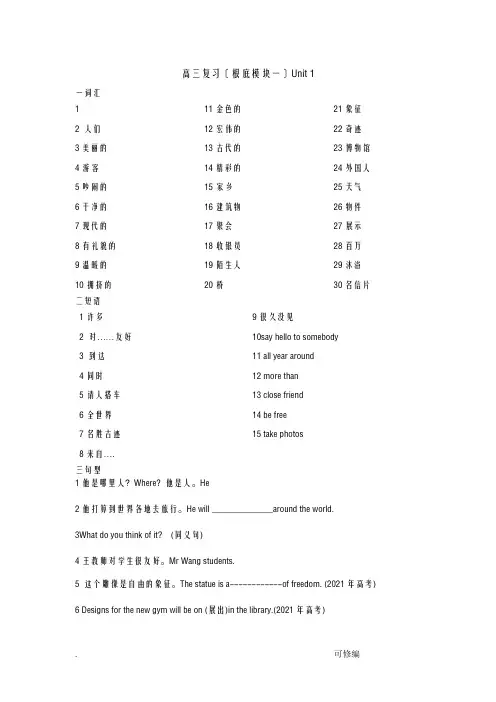
高三复习〔根底模块一〕Unit 1 一词汇12 人们3美丽的4游客5吵闹的6干净的7现代的8有礼貌的9温暖的10拥挤的11金色的12宏伟的13古代的14精彩的15家乡16建筑物17聚会18收银员19陌生人20桥21象征22奇迹23博物馆24外国人25天气26物件27展示28百万29沐浴30名信片二短语1许多2 对……友好3 到达4同时5请人搭车6全世界7名胜古迹8来自…. 9很久没见10say hello to somebody11 all year around12 more than13 close friend14 be free15 take photos三句型1他是哪里人?Where? 他是人。
He2他打算到世界各地去旅行。
He will ______________around the world.3What do you think of it? (同义句)4王教师对学生很友好。
Mr Wang students.5 这个雕像是自由的象征。
The statue is a------------of freedom. (2021年高考)6 Designs for the new gym will be on (展出)in the library.(2021年高考)7以真丝而知名。
他以秘书而知名。
Hangzhou silk.Hesecretary.8.欢送来我家乡。
9 我想要去玩电脑游戏。
I would like to10她已申请了这个公司的经理职位She the position of the manager of the pany.11 到了该吃晚餐的时候了.It’s time to/It’s time forUnit21工作2 公司3超市4 饭店5 巴士司机6 护士7医生8 技师9秘书10警察11导游12特别的13经历14银行办事员15礼物16工程师17机器18共同,一起19问候20真正地,实在地21介绍22兼职的23软件24知识25沟通26根底的27要求28周末29春季夏季30秋季冬季短语1)tour guide2)IT pany 3)bank clerk4)on the internet5)sell gift6)shop assistant7)sales manager8) address9)serve customer10)一定11)作决定12)看电视13)吃早餐14)一些信息15)收到…….的信16)申请17)回信18)坐公交车19)修电脑20)以……作为职业21)为……..工作句型1)那个男人是干什么工作的? 他是一位技师.Whatthe man ? He is a2)人们经常在街上相互问好. They often toin the street.3)有如此之多友好的加拿大人在你周围你会觉得非常温暖.You very with so many nice Canadians around.4)这个城市有几个公园.in the city.5)Theresome milk in the bottle.(瓶子里有一些牛奶)6)你受过什么特别的培训吗? Have you any ?7)首先让我自我介绍. First, let me8)Please write to me soon.9)交通很糟糕,尤其是在上下班顶峰时间. can be bad, at rush hours.10)我的工作就是保持交通流畅. My job is tothe traffic.11)我有三年的秘书工作经历. I have three12)我很幸运获得在超市买酸奶的兼职工作.I am lucky to have aselling yogurt in a supermarket. Salesperson WantedGood munication skillsBasic knowledge of puterAble to use office software练习1)一些吃的/喝的东西I’m hungry, I want .She is thirst, she want to (喝)some juice.2) say hello/goodbye/sorry/yes/no to somebody. 向……问好/辞别/抱歉或同意/拒绝某人When you do something wrong, You should to others.3)shake hands 握手shake hands with somebody 与………..握手我可以跟你握手吗?May Iyou4)make mistakes 犯错误他很粗心因此老犯错. He is careless, so he always5)laugh at 嘲笑嘲笑残疾人是不礼貌的. It isn’t politedisabled.Unit31空气1.代替2.观光3.报告4.煤5.萝卜6.雪人7.手套8.帽子9.地面10.多云的11.大雾的12.有风的13.充足的14.下雨的15.新鲜的16.真确的17.得意的18.可笑的19.短的20.已经21.季节22.温度23.忘记24.雨伞25.雨衣26.气候27.黄昏28.沙尘暴29.小心的30.雷暴31.满是沙尘的32.舒适的33.高的34.干的35.温和的36.相当37.同学38.选择39.滑雪短语1) fresh air2) weather report3) You bet4) climb mountain5) Instead of6) go skiing7)始终8)在地上9)去外面10)像….一样11)既不….也不.12)要么….要么…. 13)既….又…14)或…或….15)玩耍16)玩得快乐17)忘记干….18)忘记干过某事19)看电影20)踢足球21)上课22)在课堂上23)放风筝24)游泳句型1)的天气怎么样?2)多么得意的阿! lovely day it is! / lovely the day is!3)今天的天气很好,是吗? It’s a lovely day,4)他们昨天没回家,是吗? They didn’t go home yesterday,5) 翻开窗户,好吗?Open the window,6)让我们去打篮球,好吗?Let’s play basketball,7〕在这所学校他几乎没有朋友。
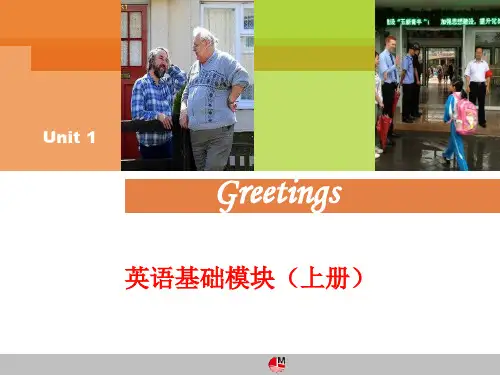
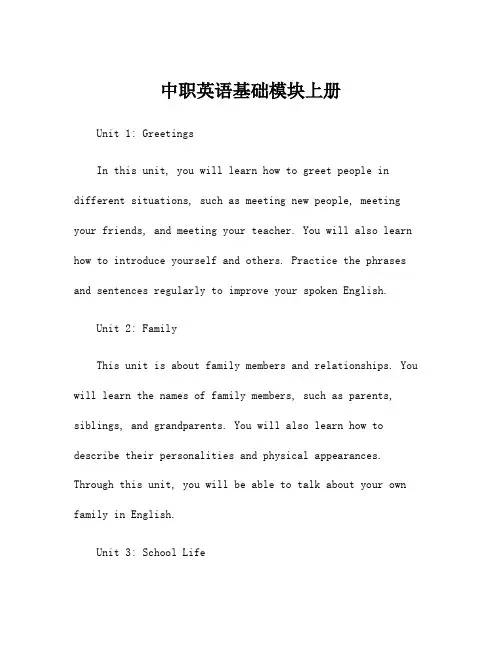
中职英语基础模块上册Unit 1: GreetingsIn this unit, you will learn how to greet people in different situations, such as meeting new people, meeting your friends, and meeting your teacher. You will also learn how to introduce yourself and others. Practice the phrases and sentences regularly to improve your spoken English.Unit 2: FamilyThis unit is about family members and relationships. You will learn the names of family members, such as parents, siblings, and grandparents. You will also learn how to describe their personalities and physical appearances. Through this unit, you will be able to talk about your own family in English.Unit 3: School LifeIn this unit, you will learn school-related vocabulary and phrases. You will learn the names of school subjects, school facilities, and school activities. You will also learn how to talk about daily routines and school events. The goal is to enable you to communicate about your school life confidently.Unit 4: HobbiesThis unit focuses on discussing hobbies and interests in English. You will learn how to express your likes and dislikes, as well as talk about your hobbies. You will also learn how to ask others about their hobbies and interests. By the end of this unit, you should be able to have conversations about hobbies with others.Unit 5: Daily RoutinesIn this unit, you will learn how to talk about your daily routines and activities. You will learn the vocabulary for daily activities, such as waking up, bathing, eating meals,and going to bed. By mastering the content of this unit, you will be able to describe your typical day to others.Unit 6: Plans and SchedulesThis unit will teach you how to discuss future plans and schedules in English. You will learn vocabulary related to making plans, scheduling events, and discussing future activities. You will also learn how to use time-related expressions to talk about future events. After completing this unit, you should be able to make plans with others and talk about your future schedule confidently.Overall, the Basic Module of Junior Vocational English covers essential topics for daily communication. It aims to equip learners with the necessary language skills to communicate effectively in various social and work-related situations. Regular practice and review of the content is crucial for mastering the material.。
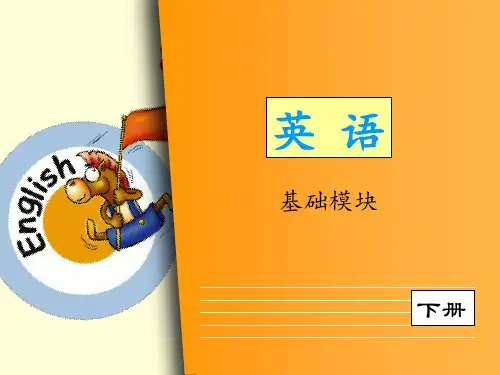
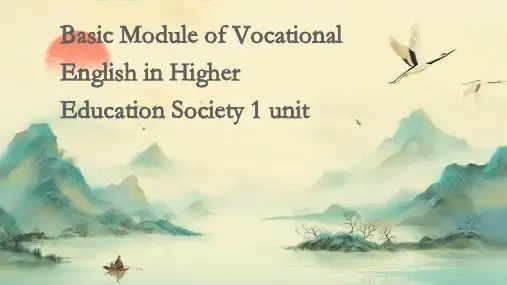
Book1 Unit 1 Nice to meet you!(第一课时教学设计)一、学情分析本单元是新生入学的第一单元,教学重点是活用招呼用语、相互了解个人基本信息、制作个人名片、学习不同职业的表达与描述以及练习发音。
就学习英语而言,职业学校的许多学生是胆大心粗,能说不会写或写不到位。
因此,教师在教学过程中应充分利用学生的特点开展相应活动。
我们可以利用学生胆大、敢说的特点,充分利用头脑风暴法采集相关素材,开展如招呼用语集锦、刨根问底探隐私、名片栏目大荟萃等活动。
教学中名片栏目的设计、描述不同职业、圆润的发音是本单元难点。
圆润的发音要靠长期的示范与坚持来实现。
名片中各栏目的设计可以集体讨论商定,个人名片设计则可以体现个性化、专业化,并决出最佳名片设计奖,教师还可以请学生一起收集生活中的名片,探讨名片的基本要素和个性特色。
职业的描述教师可以借助体态语、道具、图片、视频等来推进,还可以设计相应的练习强化学生的认知。
本单元设计分为4个课时:第一课时 lead-in + listening and speaking第二课时 reading and writing第三课时 language in use + vocabulary consolidation第四课时 unit task + pronunciation practice第一课时 Lead-in + Listening & Speaking二、教材分析1.教学内容本课时系教材《英语1》(基础模块高教版)第一单元的第一课时,包括Lead-in & Listening and speaking两部分,具体内容为:招呼用语,听懂并掌握询问和提供个人信息的词汇、句型。
2.教学重点、难点⑴教学重点招呼用语,听懂并掌握询问和提供个人信息的词汇、句型⑵教学难点个人信息的词汇、句型三、教学目标1.知识目标⑴掌握与个人信息相关的词汇,如name, first name; last name; name card; telephone number; age; address; e-mail address; job (engineer; manager; secretary; teacher; student; doctor; nurse; singer; fans); position(boss);⑵掌握提供或询问个人信息时所使用的句型,如:1) about greeting:Good morning.Hi.Nice to meet you.2) about personal informationWhat’s you name?Where are you from?Which company are you from?2.能力目标⑴学生能听懂关于询问和提供个人信息的对话。
职高英语基础模块 Unit1 Greetings第一卷选择题Ⅰ. Choose the best answer to complete the sentences. (20%)( ) 1.—How are you?--_______________.A. Fine, thank you.B.How do you doC. How nice you are! D Nice to meet you( ) 2. --________ you a student?--Yes, I ___________ a middle school student.A. Is isB. Are , amC. Am, areD.Are, are( ) 3. There _______some birds in the tree now.A. isB. areC. wasD. were ( ) 4. –You see! There _____________much rice on the desk!A. isB. areC. wasD. were ( ) 5. Let’s go shopping now, ______________?A. shall weB. will youC. do youD. won’t you ( ) 6. Open the door, ________?A. shall weB. she isC.will sheD.she will( ) 7. __________large the building is!A. HowB. WhatC. How aD. What a( ) 8. nice meat I ate today!A. WhatB. What aC. HowD. How a ( ) 9. Thanks ________the old man, or I couldn’t make such a big progress.A. forB. withC. toD. in( ) 10. I see three _______on the desk.A. boxesB.boxC. boxsD. the box( )11. The old man always makes his grandson ____ in his room after class.A. to studyB. studyingC. studyD. studied( )12. I thank you _________your money.A. forB.withC.toD. in( )13. — There are so many apples in the tree in spring,_____?A. isn’t thereB. aren’t thereC. isn’t isD. aren’t they( )14. There will be a big event in this city this year,_____?A. isn’t itB. isn’t thereC. won’t itD. won’t there( )15. I know the girl _______me today.A. next withB. next inC. next toD. next for( )16. –look! There________________!A comes a carB a car comesC does a car comeD does come a car( )17. –Nice to meet you.--____________________________.A. Nice to meet you.B. Nice to meet you, too.C. See you laterD. Good bye!( )18. I saw she ______her children to school yesterday morning.A. sendB. sendingC. to sendD.sent( )19. I can learn _______________ about Chinese history.A. a lots ofB. a lot ofC.lots ofD. a lot( )20. John ______________ after work.A want to go shopB want to go shoppingC wants to go shopD wants to go shoppingⅡ. Choose the best answer for each blank to complete the passage. (20%) Charlie came from a poor village. His parents had __1__ money to send him to school when he was young. The boy was very sad. Mr. King lived next to him. He found the boy __2__ and had pity on him and lent some money to him. So the boy could go to school. He studied hard and __3__ all his lessons. When he finished middle school, the man introduced him to his friend in the town. And he began to work.Once Mr. King was seriously hurt in an accident. Dying, he asked Charlie to take care of his daughter, Sharon. The young man __4__ and several years later he married the girl. He loved her very much and tried his best to make her happy. He often bought beautiful clothes anddelicious food for her. He was good at cooking and he cooked __5__ for her. So she became very fat and she felt it difficult to walk. And one day she found there was something wrong with her heart. Her husband wasn’t at home and she had to go to __6__ at once. The doctors looked her over and told her __7__ eat meat, sugar, chocolate and things like these. She was afraid __8__ the doctor’s words and wrote all the names of the food on the paper. When she got home, she put the list on the table and __9__. When she returned home that afternoon, she found many kinds of food: meat, sugar and chocolate in the kitchen. Charlie was busy __10__ there. As soon as he saw her, he said happily, “I’ve bought all the food you like, dear!”21. A. no B. some C. much D. enough22. A. lazy B. clever C. careful D. hard23. A. did well in B. was poor at C. was working D. was good for24. A. was angry B. thought hard C. agreed D. said “No.”25. A. a little B. a few C. many D. a lot26. A. rest B. sleep C. hospital D. work27. A. should B. would C. to D. not to28. A. to remember B. to forget C. to catch D. to teach29. A. slept B. went out C. cooked D. ate30. A. reading B. seeing C. cooking D. writingⅢ. Read the passages and choose the best answer for each blank. (30%)(A)Dick lived in England. One day in January he said to his wife, "I'm going to fly to New York next week because I've got some work there." "Where are you going to stay there?" his wife asked. "I don't know yet." Dick answered. "Please send me your address from there in a telegram (电报)," his wife said. "All right," Dick answered.He flew to New York on January 31st and found a nice hotel in the center of the city. He put his things in his room and then he sent his wife a telegram. He put the address of his hotel in it. In the evening he didn't have any work, so he went to a cinema. He came out at nine o'clock and said, "Now I'm going back to my hotel and have a nice dinner."He found a taxi (出租车) and the driver said, "Where do you want to go?" But Dick didn't remember the name and address of his hotel."Which hotel are my things in?" he said, "And what am I going to do tonight?" But the driver of the taxi did not know. So Dick got out and went into a post office. There he sent his wife another telegram, and in it he wrote, "Please send me my address at this post office."Choose the right answer31. Dick flew to New York because ___.A. he went there for a holidayB. he had work thereC. he went there for sightseeing (观光)D. his home was there32. Why did his wife want a telegram from him?A. Because she didn't know his address yetB. Because she wanted to go to New York, tooC. Because she might send him another telegramD. Because she couldn't leave her husband by himself in New York33. Where did Dick stay in New York?A. In the center of the city.B. In a hotel.C. In a restaurant.D. At his friend's house.34. Who would send him the name and address of his hotel?A. The manager (经理) of his hotel.B. The police office.C. The taxi driver.D. His wife.35. Which of the following is not true?A. Dick stayed at a nice hotel in the center of the city.B. Dick didn't work on the first night of his arrival.C. Dick forgot to send his wife a telegram.D. Dick wanted to go back to his hotel in a taxi.(B)In England, people often talk about the weather because they can experience (经历) four seasons in one day. In the morning the weather is warm just like in spring. An hour later black clouds come and then it rains hard. The weather gets a little cold. In the late afternoon the sky will be sunny, the sun will begin to shine, and it will be summer at this time of a day.In England, people can also have summer in winter, or have winter in summer. So in winter they can swim sometimes, and in summer sometimes they should take warm clothes.When you go to England, you will see that some English people usually take an umbrella (伞)or a raincoat with them in the sunny morning, but you should not laugh at them.If you don't take an umbrella or a raincoat, you will regret (后悔) later in the day.36. Why do people in England often talk about the weather?A. Because they may have four seasons in one dayB. Because they often have very good weatherC. Because the weather is warm just like in springD. Because the sky is sunny all day37. From the story we know that when _________come, there is a heavy rain.A. sunshine and snowB. black cloudsC. summer and winterD. spring and autumn38. "People can also have summer in winter." Means "it is sometimes too ______in winter."A. warmB. coolC. coldD. rainy 39. In the sunny morning some English people usually take a raincoat or an umbrella with them because ________.A. their friends ask them to do soB. it often rains in EnglandC. they are going to sell themD. they are their favourite things40. The best title (标题)for this passage is ________.A. Bad SeasonsB. Summer or WinterC. The Weather in EnglandD. Strange English People(C)Mr Brown was going away for a week. Before he left, he said to his son, "if anyone asks for me, you can tell him that your father has been out for doing something, and will be back in a week, then be sure to ask him to sit down for a cup of tea.""OK, Dad," said his son. But he was afraid his son couldn't remember this, he wrote these words down on a piece of paper and gave it to him. His son put it into his small pocket, took it out and looked at it every now and then.Four days passed, but no one came to see his father. The boy thought that there was no man to come and that the piece of paper was of no more use for him, so he burnt it that evening.The next afternoon, someone knocked at the door. The boy opened it. A man was standing at the door and said, "Where is your father?" The boy put his hand into his pocket at once and looked for the piece of paper. He could not find it. He suddenly remembered he had burnt it, so he shouted, "No more."The man was very surprised. He asked, "No more? I met your father last week. When did it happen?""Burnt yesterday evening."41. Mr Brown told his son that _____.A. he would be away from home for four daysB. he would be back in seven daysC. he would be back in a monthD. he liked a cup of tea42. Mr Brown wrote the words down on ________.A. the wallB. the doorC. a piece of paperD. his son's pocket43. A man came to visit the boy's father on ________.A. the second dayB. the third dayC. the fourth dayD. the fifth day44. The man was very surprised because _________.A. he thought the child's father was deadB. the child didn't ask him to sit downC. the child gave him a cup of teaD. he couldn't find that piece of paper45. What was burnt? ___________.A. The piece of paperB. Mr SmithC. The visitorD. The boy第二卷非选择题Ⅰ. Translate the following phrases. (10%)46. reading room 47. dining hall48. look at 49. a lot of50. classroom building 51. 靠近紧挨着52. 为…而感谢53. 课后54. 很高兴做…55. 欢迎到…来Ⅱ. Translate the following sentences. (20%)56. We all study hard here.57. There are sixty classroom in our class. 58. This way, please. Oh , here we are!59. Welcome to DuoLun V ocational School.60. Time is money, no matter what to do, just do it on time.61. (感谢你们的参观) .62. Now ___________________the playground of our school. 现在,让我们去学校的操场63.Our classroom is_________________. 我们的教师在三楼。
Unit 1单元知识清单重点单词1.Delivery person外卖员2.Firefighter消防员3.Flight attendant空乘服务员4.Cook v.烹饪n.厨师5.Notice注意6.Parent父亲或母亲7.Parents父亲和母亲8.Photo照片(复数加s)9.Younger sister 妹妹10.O ld sister 姐姐11.F amous著名的12.(in)formal正式的13.A ddressing称呼14.A ncestors祖先15.M ajority大部分16.F ew少量17.S ubject学科主题18.C ompany公司19.E arth地球20.R ecommend推荐21.F orget忘记22.L ate达到23.A rrive到达24.A rrive抵达25.L azy懒惰26.M aybe也许重点短语1.For in stance=for example 例如2.It is said据说3.Primary school小学e from来自5.Keep in mind记住6.Pay attention to注意到7.High-speed rail高铁cating the young教书(育人)9.Save food节约粮食10.Save water节约用水11.By the way ,... 顺便说12.welcome to...欢迎到……来13.be glad to do很高兴做14.look at看……15.have a look at看一下16.classroom building教学楼17.a lot of =lots of=many许多(修饰可数名词复数)18.much(修饰不可数名词)19.reading room阅览室20.after class课后21.in class 课堂上22.next to靠近;紧挨着23.thank for 为……而感谢……24.thank sb.for sth. 为某事感谢某人25.thanks to...多亏,由于26.let sb. do sth.让某人做某事27.Here we are!我们到了!28.How large it is!多么大呀!29.See you next time!下次见30.on one’s way to 在某人去某地的路上31.in this way 用这种方法重点句型1.I am very glad to meet you here today.我很高兴今天能在这儿见到你。
Unit1 personal and family life.community kəˈmjuːnəti社区; 社会; 团体; 社团; 界; 共享; 共有; (动植物的)群落; cook/kʊk/烹调,煮,烧炊事员,厨师energetic/enəˈdʒetɪk/精力旺盛的especially/ɪs'peʃəli/特别;尤其family/'fæmɪli/家,家庭gift/ɡɪft/赠品;礼物handmade hændˈmeɪd手工制作的;introduce/ɪntrəˈdjuːs/介绍jog/dʒɒɡ/慢跑manager/'mænɪdʒə/经理,负责人notice/'nəʊtɪs/通告,布告parent/'peərənt/父(母)亲photo/'fəʊtəʊ/照片puppy/'pʌpi/自负的年轻人strict/strɪkt/严格的,严密的visit/'vɪzɪt/访问,参观,拜访vocational vəʊˈkeɪʃənl职业的; 职业技术的; 业务知识的;be strict with bi strɪkt wɪð严格要求; 对某人要求严格;Chongyang Festival chongyang ˈfestɪvl重阳节; 重陽節;high schoolˈhaɪ skuːl中学,高中;younger sister'jʌŋɡər ˈsɪstər妹妹; 阿妹; 小妹妹;UNIT2 Transportationaddress/ə'dres/地址airport/'eəpɔːt/航空站,飞机场change/tʃeɪndʒ/变化,变更,改变convenient/kənˈviːnɪənt/便利的,方便的direction/dɪˈrekʃ(ə)nˌdaɪˈrekʃ(ə)n/方向;方位district/ˈdɪstrɪkt/区;地区;区域express/ɪks'pres/表达;表示;表情快车,特快专递green/griːn/绿色(的)hire/ˈhaɪə/租用near/nɪə/在...附近province/ˈprɒvɪns/省subway/'sʌbweɪ/n. 地铁taxi/'tæksi/出租汽车terminal/tɜːm/(火车汽车飞机)终点站visitor/'vɪzɪtə/参观者,访问者bus stopˈbʌs stɒp公交站; 公共汽车停靠站;get off/ˈgetɒf/来,从...下来get toɡet tu到达; 开始; 抵达; 抓住; 接触; 和…取得联系;take a taxi teɪk ə ˈtæksi乘出租车,搭出租车;rush hourˈrʌʃ aʊə(r)(上下班时的)交通高峰期;shuttle busˈʃʌtl bʌs班车; 区间(公共汽)车;Summer Palaceˈsʌmə(r) ˈpæləs颐和园;worry aboutˈwʌri əˈbaʊt担心; 担忧; 发愁; 为…发愁; 替…担忧;you'd better juːd ˈbetə(r)你最好;UNIT3 Shoppingadd/æd/添加,增加bestsellingˌbestˈselɪŋ(书等)畅销的,抢手的,大卖的;beverage/'bevərɪdʒ/n. 饮料cart kɑːt"运货马车; 手推车; 用马车运送; 用手提(笨重物品); 强行带走; 抓走; communication/kəmjuːnɪˈkeɪʃ(ə)n/交际,交往;通讯compare/kəmˈpeə/比较,对照cotton/ˈkɒtn/棉花customer/ˈkʌstəmə/(商店)顾客,主顾discount/ˈdɪskaʊnt/折扣edition/ɪˈdɪʃ(ə)n/(发行物的)版,版(本)feature/fiːtʃə/特征,容貌,特色;是...的特色,特写;起重要作用fit/fɪt/健康的;适合的;(使)适合font fɒnt圣洗池(设于教堂中,常为石造); (同样字体和字号的)一副铅字,字模,字型; jeans/dʒiːns/牛仔裤mall/mɔːl/铁圈球,林荫道material/məˈtɪərɪəl/材料,原料offer/'ɔːfə/拿出;提供online/ˌɒnˈlaɪn/在线,上网original/ə'rɪdʒənl/a. 最初的,原始的,有独创性的,原版的; n. 起源,原件,原稿rating/'reɪtɪŋ/n. 等级review/rɪ'vjuː/复习(功课等)silk/sɪlk/(蚕)丝size/saɪz/尺寸,大小snack/snæk/小吃stationeryˈsteɪʃənri文具; 信纸; 信笺;style/staɪl/方式,作风,款式sweater/'swetə/毛衣,厚运动衫tight/taɪt/紧的traditional/trə'dɪʃənəl/传统的,惯例的workplace/'wɜːkpleɪs/工作场所comvenience store kənˈviːniəns stɔː(r)便利店(常为24小时营业);fitting room/ˈfɪtɪŋ-rʊm/试衣间lead the way to带路,领路,引路on saleɒn seɪl出售; 上市; 折价销售; 减价出售;payment codeˈpeɪmənt kəʊd支付代码;pay with用……付款;shop assistantˈʃɒp əsɪstənt售货员; 店员;UNIT4 School Lifechemistry/'kemɪstri/化学college/ˈkɒlɪdʒ/学院,高等专科学校competition/ˌkɒmpɪˈtɪʃən/比赛;竞争exciting/ɪk'saɪtɪŋ/令人兴奋的experience/ɪks'pɪərɪəns/经验,体验favorite/ˈfeɪvərɪt/特别受喜爱的特别喜爱的人(或物)fun/fʌn/有趣的;愉快的hall/hɔːl/大厅,会堂,会馆hands-on hændz ˈɒn实际操作的; 动手的;hold/həʊld/拿,握interesting/'ɪntərɪstɪŋ/有趣的,有意思的internshipˈɪntɜːrnʃɪp实习;major/ˈmeɪdʒə/较大的;主要的physics/'fɪzɪks/物理(学)politics/ˈpɒlɪtɪks/政治practice/'præktɪs/练习,实践relaxing/rɪ'læksɪŋ/a.轻松的related rɪˈleɪtɪd相关的; 有联系的; 属同一家族的;联系; 使有联系; 把…联系起来; skilI skɪl"技巧; 技艺; 技术; 技能;有助于;有影响;〈古〉起作用;"skilled/skiː/熟练的;有技能的special/'speʃəl/特别的,特殊的subject/'sʌbdʒɪkt/题目,题材training/'treɪnɪŋ/训练,培养Information Technology(IT)ɪnfəˌmeɪʃn tekˈnɒlədʒi信息技术practical trainingˈpræktɪkl ˈtreɪnɪŋ实习; 实训; 实践训练; 实习机会; 实习许可; prepare...for...准备; 把…预备好; 使(自己)有准备; 防范;sound like saʊnd laɪk听起来像;UNIT5 Celebrationsattend/əˈtend/看护,照料,服侍;出席,参加attendanceəˈtendəns出席; 参加; 上学; 到场; 出席人数;banquetˈbæŋkwɪt宴会; 盛宴; 筵席;宴请;beat/biːt/打败,敲打cafeteria/kæfɪˈtɪərɪə/自助餐厅celebrate/'selɪbreɪt/庆祝ceremony/ˈserɪməni/典礼,仪式,礼节common/ˈkɒmən/普通,一般;共有的confirm/kənˈfɜːm/证实,证明,确认employee/ɪmˈplɔɪ-iː/受雇者,雇工,雇员event/ɪ'vent/大事;事件growth/ɡrəʊθ/生长,增长invitation/ɪnvɪˈteɪʃ(ə)n/邀请,请帖invite/ɪn'vaɪt/邀请,招待marketingˈmɑːkɪtɪŋ促销; 营销; 销售活动;opportunity/ˌɒpəˈtjuːnɪti /机会,时机partner/ˈpɑːtnə/搭档,合作者preparation/prepəˈreɪʃ(ə)n/准备sincerely/sɪn'sɪrli/-'sɪəl-/真诚地support/səˈpɔːt/支持,赞助help with help wɪð帮助(某人做……); 用……来帮助;in commonɪn ˈkɑːmən(兴趣或经历)共同的,相同的; 共有的;相同的;invite.to.邀请参加look/lʊk/瞧,看forward toˈfɔːwəd tu附送;need a hand(with..)'ni:də hænd wið需要帮忙on behalf ofɒn bɪˈhɑːf ɒv代表某人,作为某人的代言人; 为了某人的利益,为了某人; opening ceremonyˈəʊpənɪŋ ˈserəməni开幕式;play an important role in ..在...中起重要作用UNIT6 Food and Drinkscozyˈkəʊzi"(温暖)舒适的;保温罩;蒙骗; 抚慰;cuisine/kwɪˈziːn/饭菜,佳肴dining/'daɪnɪŋ/n. 就餐environment/ɪn'vaɪrənmənt/环境factorˈfæktə(r)因素; 因子;把…因素包括进去; (数学)分解…的因子,将…分解成因子; famous/'feɪməs/有名的,著名的medium/ˈmiːdɪəm/媒体,中间的,中等的mushroom/ˈmʌʃrʊm/蘑菇order/'ɔːdə/订购,点菜订购单,定购,一份菜proper/ˈprɒpə/恰当的,合适的quality/ˈkwɒlɪti/质量,性质recommend/rekəˈmend/推荐restaurant/ˈrestərɒnt/饭馆rare/reə/罕见的,稀有的ruin/ˈruːɪn/(使)毁坏;(使)毁灭(复)废墟;遗迹specialtyˈspeʃəlti专业; 专长; (某个地方的)特色食品; 特产;spicyˈspaɪsi辛辣的; 加有香料的; 用香料调味的; 刺激的; 粗俗的;unwiseʌnˈwaɪz愚蠢的; 不明智的; 轻率的;variety/vəˈraɪəti/种种,种类various/ˈveərɪəs/各种各样的,不同的well-donewel ˈdʌn干得好的;完全煮熟的;wiselyˈwaɪzli明智地; 聪明地;英明地;apart froməˈpɑːt frəm除了; 除了…外(都); 要不是; 此外; 加之;be able to bi ˈeɪbl tu能够; (因具有品质或技能)能做到…的;contribute to kənˈtrɪbjuːt tu贡献; 捐助; 给…投稿; 捐(款)给;eat out iːt aʊt出去吃饭; 出去吃; 在外面吃饭;mineral waterˈmɪnərəl wɔːtə(r)矿泉水; 一杯(或一瓶)矿泉水;pay attention to peɪ əˈtenʃn tu注意price range praɪs reɪndʒ价格区间;tend to tend tu倾向于; 有助于;UNIT7 The Internetclick/klɪk/咔哒声;发出咔哒声desired dɪˈzaɪəd渴望; 期望; 想望; 被(某人)吸引;fresh/freʃ/新鲜的icon/ˈaɪkɒn/图象符号,图标interview/ˈɪntəvjuː/采访,会见,面试mobile/'məʊbɪl/可移动的passer-by/'pɑːsə-baɪ/过客,过路人poem/ˈpəʊɪm/诗popular/ˈpɒpjʊlə/大众的,流行的ring/rɪŋ/(钟,铃等)响,摇铃selfieˈselfi自拍;spare/speə/空闲,多余的,剩余的takeoutˈteɪˌkaʊt外卖店; 外卖餐馆; (商店、餐馆的)外卖食品typical/ˈtɪpɪk(ə)l/典型的,有代表性的,特有的unlockʌnˈlɑːk(用钥匙)开…的锁; 发现; 揭示; 揭开; concentrate onˈkɒnsntreɪt ɒn专心于,把思想集中于; 将…集中于…; go over/'gəʊˌəʊvə(r)/过一遍,仔细检查have access to hæv ˈækses tu得接近; 得会见; 得进入;log onto lɒɡˈɒntə登录; 登录到; 进入系统; 听音乐和上网; 登陆; stay up steɪ ʌp不睡; 熬夜;UNIT8 People and Eventsbelieve/bɪ'liːv/相信,认为brilliant/ˈbrɪljənt/<口>好极了chat/tʃæt/聊天,闲谈chief/tʃiːf/主要,首要的领导,头complete/kəmˈpliːt/完成完成,结束consider/kənˈsɪdə/考虑design/dɪˈzaɪn/设计,策划图案,图样,样式graduation/ɡrædjʊˈeɪʃ(ə)n/毕业,毕业典礼invent/ɪn'vent/发明,创造invention/ɪn'venʃən/发明,创造overcome/əʊvəˈkʌm/克服,解决record/ˈrekɔːd/记录;唱片schedule/ˈʃedjuːl/工作计划,日程安排安排时间,预定stretch/stretʃ/伸展拉长一段时间(路程);伸展ahead ofəˈhed əv(时间、空间)在…前面; 早于; 领先;schedule/ˈʃedjuːl/工作计划,日程安排安排时间,预定ebook reader电子书阅读器;return to rɪˈtɜːn tu回到; 返回; 还给; 降到;show an interest in对……表现出兴趣;succeed in səkˈsiːd ɪn成功于;。